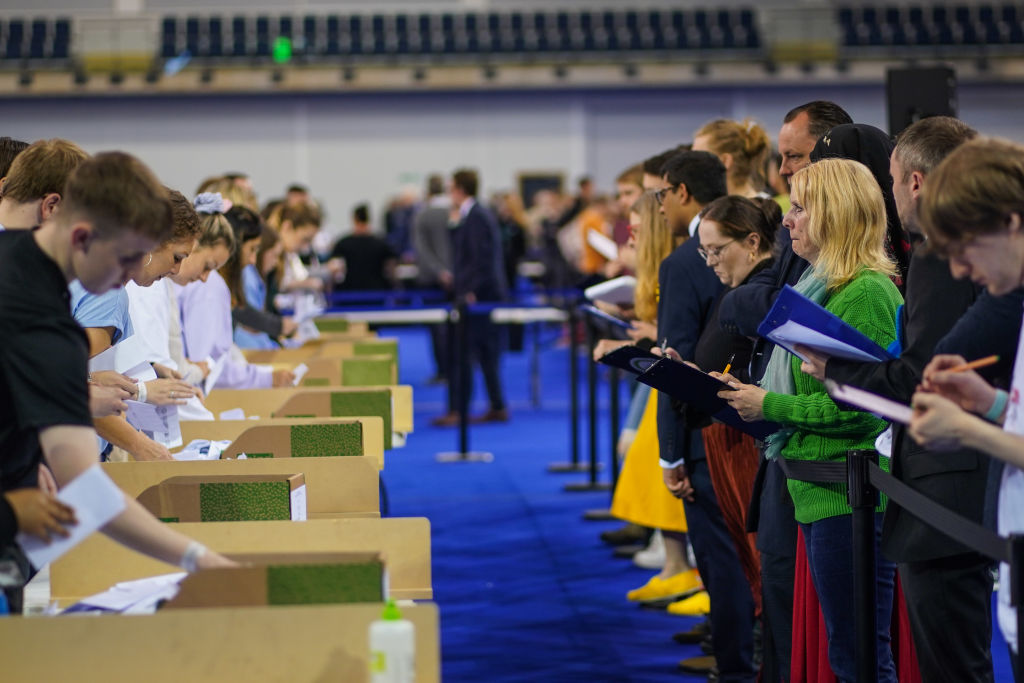
This month, UK voters went to the polls to elect councillors to local governments in England, Scotland and Wales (and regional government in Northern Ireland). While the media gaze often fixates on Westminster and the significance of the elections for the major parties nationally, much of the most important public services and decisions are made by councillors. Following the elections, Spotlight approached four councillors – some new, some veterans – to hear what they think are the key policy challenges ahead in their area.
Judi Billing is a veteran Labour councillor from North Hertfordshire, where traditionally Conservative-leaning commuter towns have been led for the past couple of years by a Labour-Lib Dem coalition, which won control of the council from the Conservatives in 2019. The commuter belt has turned away from the Tories as residents feel the impacts of Covid-19 and the cost-of-living crisis.
How did you get into local politics?
I have been a district councillor for 42 years and a county councillor for nine years. My professional background has been quite varied. I was in further and higher education from 1977 to 1999, and for the last 22 years in leadership development for the Local Government Association (LGA) and other organisations, working with councils, councillors and officers around the UK and on several international assignments.
Why does local government matter?
Local government is important to me as the place where people and the services they need interact, talk, support voluntary and statutory provision, and ensure the well-being of their communities. As a place to support communities, this has always been important to me, and [it] has become even more of an imperative through the two years of Covid-19, and now into the cost-of-living crisis.
Clearly, turnout at local elections is less than that at general elections, but in North Herts it has been higher than usual over the last two years, which I optimistically think may mean that the general public is beginning to also see its importance. That maybe is a bit too optimistic!
What are the biggest challenges facing local government?
The challenges I see at the moment are, of course, about the funding of services after 12 years of extreme funding cuts. There is also a huge challenge in staffing some key services as well, such as adult social care and social work – which has been the case for a very long time, but at the moment it seems we can’t even staff highways and other, quite basic, practical services. For me, the challenges are to ensure that our citizens have a decent home, are warm, well, fed and educated and can access the help they need when they need it.
What are the biggest challenges facing your constituents?
All of the above, but in a place like North Herts housing is a huge problem for young people who would like either to own their own homes or have the right to rent high-quality social or private sector housing. The costs of ownership are prohibitive and the supply of social housing is totally inadequate.
What is your most urgent policy priority?
Finding the best ways to support families and isolated elderly people struggling with food and fuel prices, and to find ways to ensure that these are the priorities of all our citizens even if they don’t suffer from these problems. I would dearly love to improve the reputation of local government beyond the insulting and sometimes comparatively minor issues expressed through some local social media. It’s sometimes hard for people to understand the depths of poverty experienced by some people in a generally wealthy area such as North Herts.
Are you happy with Labour’s performance in the local elections in your area and across the country?
I was extremely happy with Labour’s performance in North Herts for the past two years. Sadly, we have felt like a bit of a blip because results for us have been far less good in some other parts of the country, and even in our own county.
What do the results say about the state of national politics?
Fluid and febrile! Never has it been more true that a week is a long time in politics. I just fervently hope that the current quality of political discourse doesn’t become the accepted norm because it’s horrible and demeans us all.
Read more: Pothole politics: A Conservative councillor on Croydon in crisis





